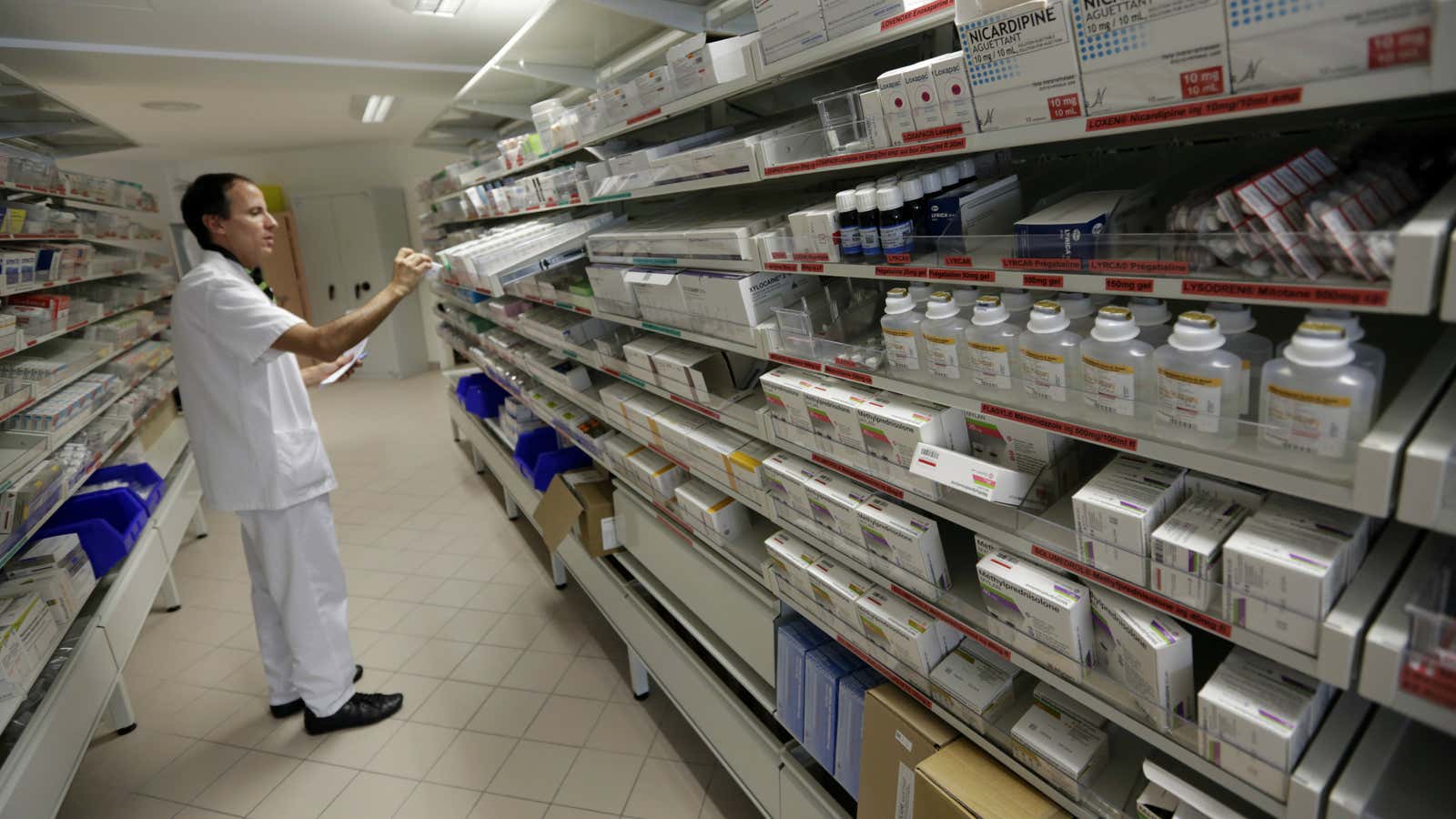Back in September a little-known pharmaceuticals company headed by former hedge fund manager Martin Shkreli raised the price of Daraprim, a sole-source generic medication used by AIDS patients, from $13.50 to $750 a pill. The increase incited public outrage, especially following Shkreli’s unapologetic defense on Twitter.
Shkreli—who became known as “pharma bro” during the controversy—can attempt such stunts thanks in part to unregulated market forces. But those same forces might drive him out of business now that an analogous compound drug priced at $1 a pill could soon hit the market.
Imprimis Pharmaceuticals announced it will offer a pill containing pyrimethamine, the ingredient in Daraprim that fights toxoplasmosis, a parasite-induced disease that threatens patients with weak immune systems. Imprimis’ medication isn’t identical to its competitor. But according to Ars Technica, it could serve as an effective and much cheaper alternative, given that Daraprim is the only other pyrimethamine-based drug on the market.
Imprimis CEO Mark L. Baum says the San Diego-based company is introducing the drug in order to combat skyrocketing drug prices in the United States.
“It is indisputable that generic drug prices have soared recently,” he said in a company statement. “While we have seen an increase in costs associated with regulatory compliance, recent generic drug price increases have made us concerned and caused us to take positive action to address an opportunity to help a needy patient population.”
The little-known Imprimis is a specialty pharmaceuticals company that exclusively makes compound drugs—medications derived by “mixing” existing FDA-approved medications in order to serve patients that can’t otherwise take a drug’s standard version (for example, they might be allergic to one of its inactive ingredients).
Compound medicines like the ones Imprimis makes don’t come without controversy. For one thing, ironically, they’re known for being prime targets for the same type of price gouging that Daraprim has (so far) enjoyed. Since compounds are created for relatively small number of patients, pharmacies often charge insurance companies the patient’s perceived maximum willingness to pay. The New York Times cites one instance where a compound version of Balmex, which retails for $5.99, cost $1,600.
But in this case, it appears Imprimis is introducing a compound drug not because patients have some physical aversion to the generic version, but because they otherwise couldn’t afford it. (And, perhaps, for some good PR, which it seems to be getting.)
Imprimis’ version of the pill also remains unapproved by the FDA, like many other compound medicines. But it can still be sold commercially through a doctor’s prescription, as it’s derived from medicines that themselves are already FDA-approved. Baum told the San Diego Herald-Tribune that seeking its approval would take years and cost millions of dollars. Yet lack of regulatory oversight among compound medicines has caused fatal mishaps in the past—in 2012, botched compounding from a New England facility ultimately killed 7 people.
But for many drugs, prices are high and supply is scarce. Patients in need of Daraprim would likely rather pay $1 for a just-as-effective knockoff than $750 for the real thing.




